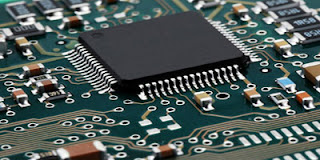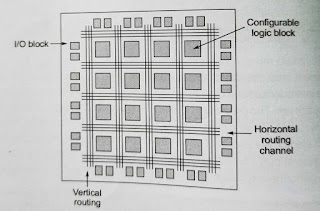VLSI : Scope and skills
VLSI is huge area of expertise as it requires good experience and many cutting edge skills to grow .There are very few colleges or universities which provide that kind of exposure to masters students in india ,so you need to be careful about that.Secondly, the scope for VLSI in India is limited to only handful of metro cities like Delhi,Bangalore,chennai and Hyderabad.Companies like AMD,ST Micro,intel and qualcomm hiring for VLSI engineers are very specific about their requirements and it is somewhat difficult to crack them.
Why it is difficult to fresher to enter in VLSI field ?
- less number of VLSI companies in india
- Even in those companies mostly recruit B.tech/M.tech mostly from IIT's and NIT's.
- Lack of required skills in the students.
Scope and job opportunities :
- Electrical/Electronic students can easily enter in the field.From some profiles Computer science students can also get the job.
- Now a days because so many startups are working in the field.So the opportunities are scaling up but still fo freshers its not easy to get the jobs in VLSI.
- Scope is pretty descent in VLSI.Job offers ,Challenging jobs and many things to learn.
Theoretical knowledge is very important.
Deep knowledge in the core subjects is must. Students should try to learn concepts from standard book only.Try to understand the applications of the each concept instead of mugging them.know about device physics in detail.Show some interest in the programming languages and try to command at least one language.Learn and practice the basics of clipper,clamper,rectifiers and network solving.
Important core subjects :
- Network analysis
- Control system
- Analog and Digital electronics
- Analog and digital communication
- Signals and systems
- Electronics device physics
Important concepts to learn in each subjects :
1.Network analysis :
- KVL,KCL,network theorems this should be learnt properly as they are basic concepts in network analysis.
- Good knowledge about solving the circuits containing diodes,R,L,C,zener diode,etc.
- Good knowledge of the two port networks.
- Interviewers can ask questions based on networks which have multiple passive and active elements.
- Boost your knowledge about transient analysis.
2.Control system :
- 2nd order system and steady state error.
- pole zero analysis and root locus diagram.
- Bode plot
- other stability analysis techniques.
- Signal flow graph and mason's gain formula.
3.Digital electronics :
- Digital electronics is the subject which most of the students like and companies also ask many questions from the subject.
- Questions will be mostly asked from sequential circuits.Combinational circuits is generally easily handled by most of the students.
- If your getting interviewed for digital profile then you will see lot of questions from the subject only.Fro analog also questions will be asked from the subject.
- Flip Flops,Mux,Latch,Counter design.These topics get more attention.
- Difference between latch and Flip Flop.Setup hold time explanations.
- Number system,base conversion,difference between mealy and moore state machine
- Race around problem,Shift register counters,De morgan's theorem.
- Logic families ,Duality theorem ,Asynchronous counters
4.Anolog and digital communications:
- Mostly digital communication is asked
- For RF design this subject become important
- BER,Eye diagram,PSD,Signal integrity and other important topics.
- From analog communication you won't see much questions.
5.Signals and system :
- It helps in network problems.
- Laplace transform is very important concept in signals and system.
- Signals and their representation.
- Fourier Transform.
- Stable and unstable systems.
Other important topics :
- RC circuits fundamentals:
- very basic topic.
- students should have clear idea about charging and discharging of RC circuits.
- students should be able to plot some important plots related to the different RC circuits
- CMOS inverter:
- students should be able to explain PMOS and NMOS state for different conditions and inputs.
- students should be very clear about basic working about CMOS inverter.
- Understanding its operation under different load conditions.
- Its characteristics and concept of delay.
- students should be able to explain PMOS and NMOS state for different conditions and inputs.
- students should be very clear about basic working about CMOS inverter.
- Understanding its operation under different load conditions.
- Its characteristics and concept of delay.
- Common analog circuits:
- Differential amplifier.
- Current mirrors are very common.
- students should have god idea about these common analog circuits.
- Differential amplifier.
- Current mirrors are very common.
- students should have god idea about these common analog circuits.
- Operational-Amplifier:
- It's among one of those topics which most of companies prefer to ask.
- Understand the applications of Op-amp in different configuration.
- From 2 stage Op-amp clear your stability,pole zero, miller theorem concepts.
- Ideal and practical Op-amp characteristics.
- It's among one of those topics which most of companies prefer to ask.
- Understand the applications of Op-amp in different configuration.
- From 2 stage Op-amp clear your stability,pole zero, miller theorem concepts.
- Ideal and practical Op-amp characteristics.
Practical Skills :
- It's always good if you learn how to implement theoretical learnings into practical.
- In order to stand out yourself from gathering you will have to do some extra.Focus on learning of practical skills well.
Tools and Softwares :
- Cadence Virtuoso/Synopsis custom compiler
- For circuit and layout design.
- License cost is expensive
- If your college have student version of this tool please learn it to use.
- Synopsys.
- Mentor Graphics.
- Xilinx.
- Tanner.
- Electric.
- Silvaco.
- Glade
Training :
- If your college do not have required tools you can go for 1-2 month training. It costs around 10K-15K.
- You can also go for job oriented 6 month training in VLSI
- Before you do training make sure your are good enough to theoretical subjects.
Programming languages :
Rajesh Adam
Source/Courtesy for Picture:
https://images.app.goo.gl/Lb8djkhNe3xTXrRT8





Informative, had a great read!
ReplyDeleteNice work guys!
ReplyDeleteInformative!
ReplyDeleteEnticing topic
ReplyDeleteMuch informative 👍
ReplyDeleteGood content 👍
ReplyDeletethanks,check other posts too ,give below the comment section.
DeleteGreat Insight
ReplyDeleteNicely done guys!
ReplyDeleteCheck other posts too ,give below the comment section.
DeleteGood work, well done🤟
ReplyDeleteGreat work rajesh🙌🏻
ReplyDeletethanks!!
DeleteInformative 👍👍
ReplyDeletecheck other posts too ,give below the comment section.
DeleteVery insightful!
ReplyDeleteThank you Kunal ,
Deletecheck other posts too ,given below the comment section.
Very good information
ReplyDeletewonderful information
ReplyDeletethank you Pratik!
DeleteGood content
ReplyDeleteGood content👌🏻👍🏻👍🏻
ReplyDeletecheck other posts too ,give below the comment section.
Deleteand thanks
Nice work
ReplyDeleteGood research keep it up
ReplyDeletehope you enjoyed reading the post!
Deletemuch needed!👍
ReplyDeleteVery informative!! Good job really the appreciated one
ReplyDeletethank you!
DeleteHelpfull info... good research Rajesh.
ReplyDeleteNice work👍👍
ReplyDeletethank you!!
DeleteNice brother 👍
ReplyDeleteNice Rajesh
ReplyDeletethanks
Deletevery informative about concepts in subjects important to get job in VLSI
ReplyDeletenice work guys!!
ReplyDeleteThis comment has been removed by the author.
ReplyDeleteThis comment has been removed by the author.
ReplyDeletenice work!
ReplyDeleteCheck other posts too ,give below the comment section.
DeleteThis comment has been removed by the author.
ReplyDeleteVery Informative
ReplyDeletethank you Bhavesh
DeleteGreat content worth a read👍
ReplyDelete